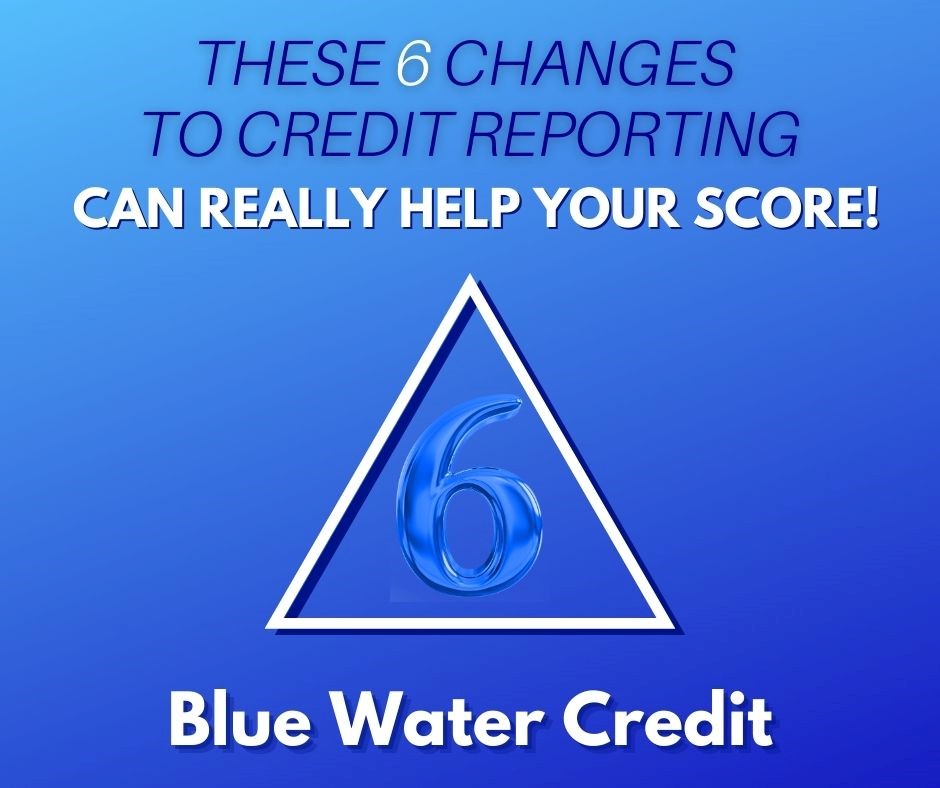 Credit scores have been on the rise in recent years, with the average national FICO score now surpassing 700 (it’s now 711!).
Credit scores have been on the rise in recent years, with the average national FICO score now surpassing 700 (it’s now 711!).
People have caught on that managing your credit correctly only saves you money across the board, from lower mortgage rates to better credit card rates, smaller payments for student and auto loans, and even saving you when it comes to cell phone and utility bills.
Consumers not only have more information and guidance than ever when it comes to boosting their credit scores, but there are several changes in credit reporting that open the door for improvement as well.
Here are six relatively recent changes to the credit reporting industry that can really help consumers:
- Free Weekly Credit Reports
The Fair Credit Reporting Act (FCRA) gives consumers the right to access a free copy of their credit report once every 12 months. But the credit bureaus realize that the more consumers are able to check their reports, the better they can manage their credit, make sure everything is accurate, and even fend-off identity theft or financial fraud.
The changes happened during COVID, and now the bureaus allow consumers to check their credit reports every single week instead of once a year – all for free!
To see your free credit report 52 times per year, just go to www.annualcreditreport.com.
- Credit disputes are resolved in about 14 days, not 30 days.
The Fair Credit Reporting Act typically allows credit reporting agencies 30 days to respond to disputes from consumers. There were even many cases where the credit agencies were allowed an extra 15 days, for 45 days total.
But these days, disputes are being turned around much more quickly, usually taking just two weeks or so. With vastly improved technology (everything is now online instead of needing to send snail mail), and systems, the average time span to resolve disputes is 10-14 days.
- Did you miss a payment? You now have a 30-day grace period (for credit reporting)
When a consumer makes a payment late, it’s reported by the lender to the credit bureaus. Of course, that will end up doing great harm to their credit score.
But many people don’t realize that if you’ve made a late payment, you have a 30-day period when you can keep it from hitting your credit report. Yes, it’s true – lenders cannot report a customer’s late payment until it’s a full 30 days late.
You never want to pay late – but you should be able to keep it off your credit report by catching it early!
- New rules for medical collections.
If you’ve ever had a serious illness, accident, or need surgery, you well know that the cost of healthcare is outrageous, and much of that ends up as medical debt. As patients (and debt holders) struggle to pay off that debt, medical bills often go to third-party collection agencies. Those collections appeared on credit reports, sinking scores and rarely resolved in the consumer’s favor.
However, new changes to FICO scoring models diminish the negative effect of medical debt and collections, so it won’t hurt your credit score as much. VantageScore is following suit with its scoring model in 2023, and FICO Score 9 ignores collections that have a zero balance.
Even better, debt collectors can’t report medical collections to the credit bureaus until they are a year old, and medical bills under $500 in collections won’t even be reported to the bureaus!
- Credit reports won’t reflect tax liens or judgments.
The credit bureaus stripped tax liens and judgments from credit reports as of 2017. That was a big boost for some consumers since public records like tax liens and judgments appeared on credit reports for decades before.
The credit bureaus made this change voluntarily on their own, citing errors with assigning public record reporting to the wrong consumer reports in many cases. Either way, that helps a good number of people improve their scores.
- Are you disputing something on your credit report? Your credit scores are protected during that process!
Every consumer has the right to challenge or dispute items on their credit report if they have reason to believe it’s inaccurate, outdated, reported in error, etc. During that formal dispute process, the credit bureaus will conduct an investigation with the original lender or account holder that reported the item.
During that time, the credit reporting agencies typically ignore the negative item, as they want to resolve the dispute and confirm it’s accurate or not before it hurts a consumer’s score.
This is another reason why Blue Water Credit has such great success increasing consumer credit scores – ethically, legally, and quickly!
If you have any questions about credit scores, credit reporting, or need a credit report boost, contact Blue Water Credit!






